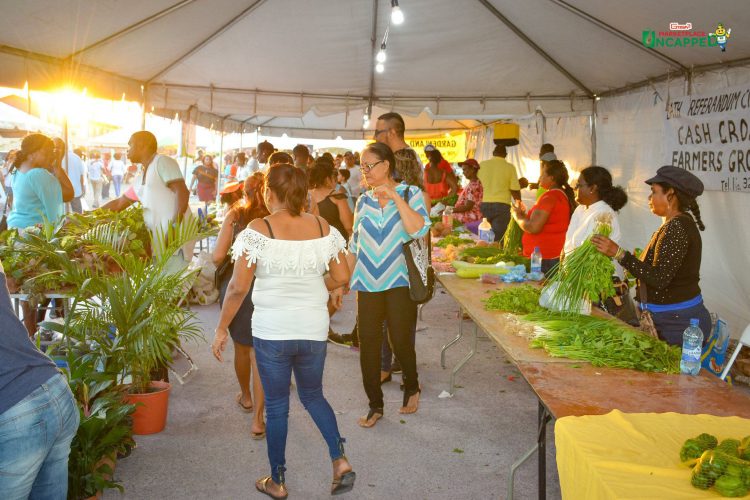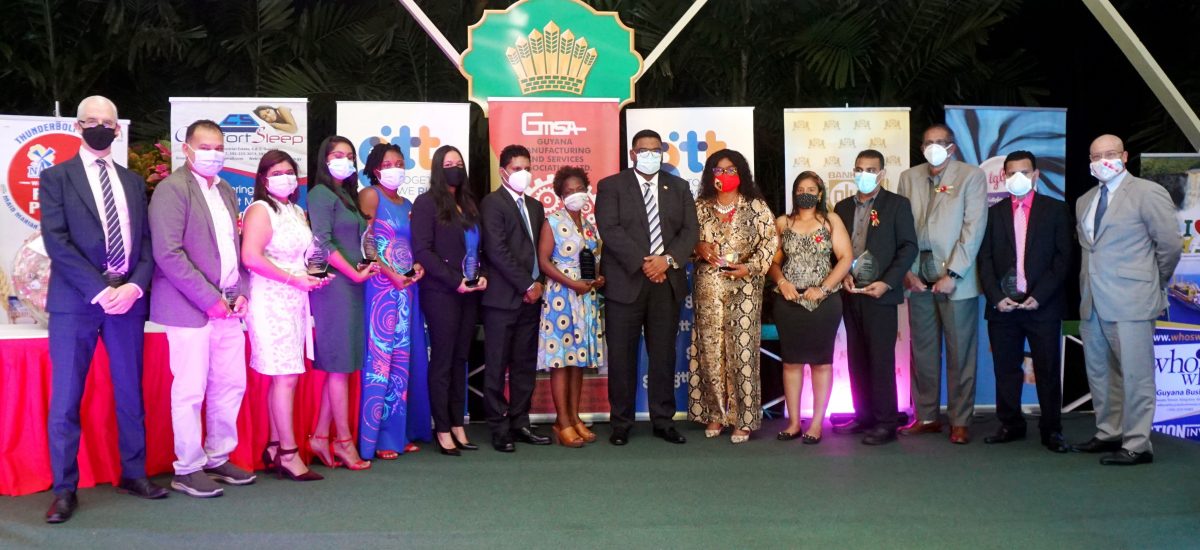With an eye to consolidating the role of the Guyana Manufacturing & Services Association (GMSA) ahead of the anticipated inflow of overseas investments expected to accompany the extraction of Guyana’s oil and the economic opportunities expected to derive therefrom, its President Shyam Nokta, on December 2nd used the platform afforded him by its Annual Awards Presentation Ceremony, to outline its focus in pursuit of an enhanced strategic role in influencing the direction of the manufacturing sector as well as key areas of the small business sector.

Among the local Business Support Organizations (BSO’s) the GMSA has, in recent years, demonstrated by far the highest level of intent in terms of determination to raise the profile of micro and small businesses, markedly in the agricultural and agro-processing sectors. The Association having strategically used its trademark UncappeD event to strengthen its closeness to emerging small businesses, the GMSA President used his December 2 presentation to disclose that the onset of COVID-19 having cast doubts on the staging of similar events in the foreseeable future, the GMSA had leveraged a pre-existing partnership with the US oil giant ExxonMobil to realise a new agreement under which the company is supporting the creation of a web portal to enable the continuity of the UncappeD concept, virtually, that will link product and service providers with potential clients, locally, regionally and internationally. Work is currently underway towards the creation of the portal.
In a presentation that signalled the GMSA’s satisfaction with the outcomes of the recent protracted electoral process, Nokta made no secret of the high expectations which the Association now has of the Irfaan Ali-led PPP/C administration, asserting that the new government had taken office “amidst a high level of optimism, especially in the private sector.” According to Nokta, not only was the private sector impressed with the speed with which the new administration had presented a budget for the remainder of the current year but also with its putting in place of measures aimed at combatting the COVID-19 pandemic.
From the menu of measures outlined in the budget, Nokta singled out, among others, the removal of value added taxes on electricity, water, exports, machinery and equipment, notably in the forestry, mining and agricultural sectors, building and construction materials, fertilisers, agrochemicals, pesticides, and key inputs in the poultry industry. He also expressed the GMSA’s satisfaction over the reversal of land lease fees across the sectors, its announcement that it will be providing “tax concessions on investment in agro-processing facilities,” and its decision to reopen the sugar estates and to recapitalise the sugar industry. According to Nokta, these measures have provided “a much-needed impetus to restore investor confidence and a clear demonstration of government’s commitment to restore economic activities in the shortest possible time.”
Evidently determined to send unmistakable signals of the GMSA’s high expectations of the new political administration and its intention to work closely with it, Nokta disclosed that the Association had moved to establish Technical Working Groups with various key ministries including those responsible for Agriculture, Natural Resources, Labour, and Public Works, a move clearly intended to strengthen its own role in policy decision-making in key state sectors. These apart, the GMSA president disclosed that the Association had been “working closely with the Ministry of Foreign Affairs and participating at the level of the Council for Trade and Economic Development (COTED) to represent the interests of local manufacturers as it regards trade barriers.”
But it was on the domestic front that Nokta’s presentation at the December awards ceremony appeared to carry by far the greatest weight. He announced that at what he described as “the more strategic level,” the GMSA had moved to establish a joint Working Group with the Ministry of Agriculture to address “critical issues” and to “provide a mechanism for coordination and collaboration on initiatives to advance agriculture and agro-processing.” He disclosed that the collaborative initiative will, next year, be pursuing “among the areas of priority… technology support for SMEs to facilitate value adding of products at site for items which already have a foothold in the domestic market.” If the GMSA can succeed in getting these various envisaged areas of collaboration with government, it would have succeeded in securing an unprecedented level of private sector influence in leveraging state policy in important areas of the country’s development including manufacturing and the growth of the small business sector.
Currently serving his third term as head of the GMSA, Nokta, whose ascension to the leadership of the organisation has coincided with a deepening of the GMSA’s interest in the growth of the forestry sector, announced in his December 2 presentation that the Association had been able to secure a grant from the FAO to conduct a feasibility study for a Consolidated Stock Yard to support market demands and to further advance value adding. “Through a Joint Working Group with the Ministry of Natural Resources and including the Guyana Forestry Commission, the GMSA is working with government to support recovery of the forestry and wood processing sector. High on the agenda is the issue of the maintenance and upgrade of interior roads which is a critical issue affecting forestry operations,” Nokta disclosed.
Beyond its local remit, Nokta announced that the GMSA had moved to create a role for itself in intra-regional manufacturing and trade issues by becoming a founding member of the recently established Caribbean Manufacturers Association (CMA) along with sister local manufacturing BSO’s in Barbados, Dominica Jamaica, St Lucia and Trinidad and Tobago. Listed among the immediate priorities of the new regional manufacturing body is, according to Nokta, “maximising opportunities for utilisation of sugar from the region through specialisation,” an issue that is certain to be one of particular interest to the political administration here.
In his presentation Nokta credited the GMSA with, since 2017, working with “over 100 agro-processors in Guyana, including women’s groups, young people, and Indigenous groups” on initiatives aimed at “raising their profile through several Expos as well as awareness training and capacity development activities to better manage and grow their businesses.”









